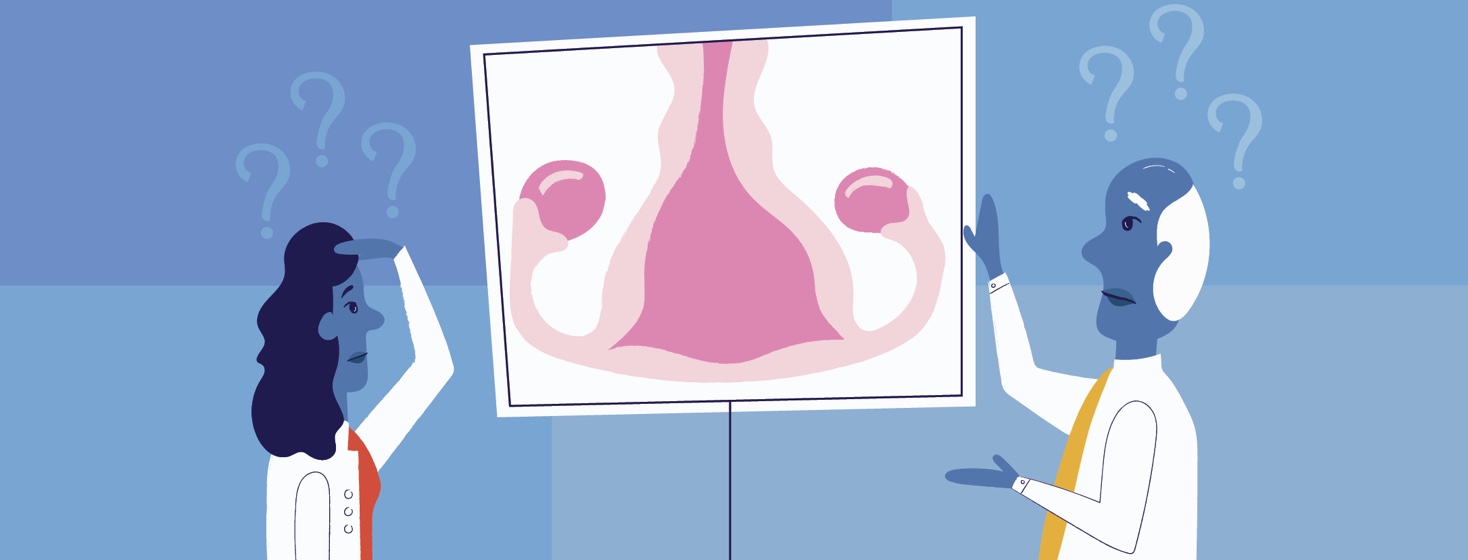Are Doctors Looking At Endometriosis the Wrong Way?
Almost daily, I log into my local endometriosis support group and find someone frustrated at their GP. Helpless, they will reach out enquiring about a particular endometriosis symptom. Fellow members of the community will mention dietitians, endocrinologists, pelvic floor therapists, fertility specialists, the list goes on.
Sometimes it seems only endometriosis patients get how multi-faceted this disease can be
The reality is that when we list our symptoms to a doctor, they will respond to very few. They may offer us medication, or a useful referral. But not every symptom is recognized. Sometimes the ones that cause us the most discomfort are considered odd, isolated, and like such, left untreated. My own GP told me how she couldn’t explain my leg pain - a life-disrupting, endometriosis symptom. Since my doctor offered no help, I was forced to follow my own initiative. Eventually, I found a massage therapist who eased my discomfort.
It all cost me money and time. Yet, that wasn't the last time I was forced to seek out alternative treatment. As an endometriosis patient, the fact that health professionals don’t connect the dots exhausts me. I see my disease as a wide range of symptoms, but the treatment I’m offered does very little to cover them all.
There is so little known about endometriosis
There are several theories that attempt to explain why it happens. Some talk about excess in estrogen, while others mention genetics. There are some lines of thought looking at childhood trauma as the root of the disease. There is also no explanation on why some patients live with severe pelvic pain, presenting very few adhesions, while others experience just mild discomfort, yet their bodies are riddled with adhesions.
The gold standard for endometriosis treatment is excision surgery, yet there is also ablation. My own specialist used both. When I asked him why he had chosen ablation over excision all over, he explained how he did so because he considered certain adhesions part of a “different disease”. In his eyes, endometriosis would encompass a range of illnesses.
So why, as patients, do we get a blanket approach? Why is it a case of either a hysterectomy, ablation surgery, or some sort of hormonal therapy?
A reclassification of endometriosis could help patients
A group of academics believes that reclassifying endometriosis as a syndrome would help address the gaps in its current treatment.1 According to their research, a disease has clearly identifiable symptoms and consistent physiological features. In this sense, endometriosis fails to meet these requirements. For instance, its lesions are not directly related to the symptoms suffered by each patient.
Furthermore, because diagnoses focus on the presence of adhesions, it places those with key endometriosis symptoms such as chronic pelvic pain, out of the endometriosis umbrella. This leaves them potentially untreated.
To others, endometriosis behaves like an autoimmune disorder
Recent studies have established how endometriosis looks like a disease of the macrophages, cells in our immune system. They believe that macrophages are responsible for endometriosis adhesions, since they perceive endometrial tissue as a wound, and react to it accordingly.2
There are as many points of view as endometriosis symptoms
There is no agreement on how endometriosis starts or behaves. Most doctors ignore the life-disrupting nature of symptoms such as chronic fatigue and hip pain. As patients, we are being offered a very narrow range of treatment for a disease that presents too many symptoms to be treated in one swoop.
We need doctors to read up on endometriosis, and recognize how the symptoms we describe are real, most of them too severe for us to hold down a job, function normally, or care for our families. We need them to look at our disease with real interest and stop dismissing us when it feels out of their hands. It isn't. They have the prescriptions, the resources, the power to refer.
We need them to help us more effectively.

Join the conversation